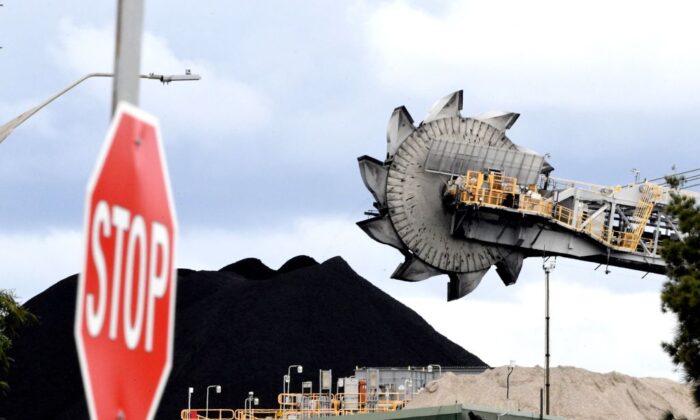Only 9 out of 80 Copper Mines Progressing Towards Net Zero Due to Red Tape Hindering Mining Projects
Speakers at the International Mining Conference emphasized that red tape stands as one of the major obstacles hindering the industry’s progress.
Tania Constable, CEO of the Minerals Council of Australia, voiced concerns over excessive government regulations and the lack of support for supply chains to aid in meeting Australia’s net zero targets.
During the International Mining and Resources Conference and Expo (IMARC), held on Oct. 29, speakers echoed similar sentiments about the challenges faced by the industry.
Constable referenced the International Energy Agency’s 2021 assessment, highlighting the need for 260 new mines for copper, nickel, lithium, and cobalt by 2030 to cater to the demand for electric vehicles and batteries.
Despite this urgency, progress in this direction has been sluggish.
Moreover, there has been a decline in mining investments, with a projected 5.2 percent decrease in capital expenditure this year.
“When we consider the key minerals of copper, nickel, and lithium, mining operations are becoming increasingly difficult… Out of the 80 required copper mines globally, only nine have made progress, while just 21 out of 70 nickel mines are currently operational,” she explained.
To attract investments, Constable stressed the need for governments to establish stable business environments and promote international collaboration.
“Mining serves as the backbone of our global economy,” she asserted.
“It plays a crucial role in driving our nations and supporting our infrastructure, industries, defense systems, and transition to sustainable energy sources.
There is anticipated a 400 percent surge in demand for materials like lithium, copper, and nickel by 2035.
“In light of this, governments should implement policies that encourage investments in the sector and expedite projects to achieve our objectives with ease,” Constable emphasized.
Reforming Red Tape Challenges
On the other hand, the challenges have been compounded by high inflation rates and interest rates.
She urged the government to establish mechanisms that ensure credibility, transparency, and accountability in establishing new global supply chains.
“Recently, the Minerals Council of Australia led a delegation of 15 European Union ambassadors on a tour of mining sites in Western Australia,” she noted.
“Following this visit, an MOU was signed between the EU and Australia to enhance cooperation on critical minerals.
“While our Minister Madeleine King and Minister for Trade Don Farrell have taken steps to facilitate this partnership, we must follow through with concrete actions between governments and businesses,” she added.
The Epoch Times reached out to the office of Resources Minister Madeleine King for a statement.





